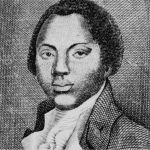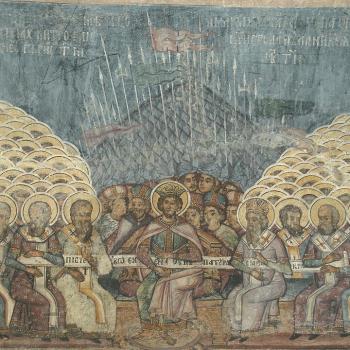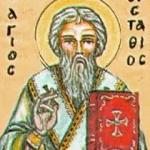When Pope Francis named the Armenian monk Gregory of Narek (c. 951-1003) the thirty-sixth universal doctor of the Catholic Church in 2015, many were caught off guard. Gregory who, from where, joining the company of Augustine and Thomas Aquinas? This was my response too. But reading Gregory, prompted by research trip to Armenia, has convinced me of the pope’s rationale—this and the fact that the Vatican’s actions deliberately coincided with the 100th anniversary of the beginning of the Armenian Genocide, known by Armenians as the Metz Yeghern (the Great Evil).
Who was Gregory of Narek? Born around 950, the son of a widowed bishop, Gregory received his education at Narekavank (present-day Turkey) before making vows of his own in 977. His maternal great-uncle, Ananias of Narek, the founder of the monastery in the city, appears to have been a major influence, but beyond this, little is known about Gregory’s life apart from the works he left behind. These include lyrical poetry, hymns, mystical speculations, and liturgical compositions. But he is best known for his Book of Lamentations, a gem among gems in the Armenian canon. I delighted in seeing an early, illuminated version of it at the Matenadaran museum in Armenia’s capital, Yerevan.
Sometimes rendered as The Book of Sadness, Gregory’s book is composed of ninety-five laments, each beginning with the phrase “words unto God from the depths of my heart.” It was only first published in 1673 (in France). Since then, the book has appeared in many other languages, although sadly it did not make it into English until 1977. Armenian Christians hold the book in such high regard that miraculous healings have been attributed to it.
The book’s central theme explores the deep gap between Gregory’s desire for holiness and his inability to achieve it. Lamenting his unworthiness, to the point of despair, nonetheless binds him ever-closer to God’s all-encompassing mercy and grace. For this, he has sometimes been called the “Doctor of Grace.” The book speaks both to the soul of every Christian, but also to the tragic experience of Armenian history. As Pope Francis wrote in 2015: “Saint Gregory of Narek . . . knew how to express the sentiments of [the Armenian] people more than anyone. He gave voice to the cry, which became a prayer, of a sinful and sorrowful humanity, oppressed by the anguish of its powerlessness, but illuminated by the splendor of God’s love and open to the hope of his salvific intervention, which is capable of transforming all things.”
But better to listen to Gregory himself:
My righteousness has waned and totally vanished,
Leaving my sins exposed and ever increasing . . .
My crop of goodness has rotted away,
And my faults have hardened like rock . . .
The Benefactor is saddened, and the accuser is jubilant.
The host of angels mourn, and Satan dances in ecstasy.
But Gregory does not leave things there. Repeatedly laid low by sin and slothfulness, he never forsakes God’s promises:
And, now I pray [to] you, O Compassionate One, grant me your mercy as you prescribed to us in your own words, saying “Make that offering to God in the name of salvation and be holy, for I desire mercy and not sacrifice.” Hence be exalted anew by this remembrance . . . [for] you are the possessor of everything, and everything is from you..
Lament 27 (there are 95 in all) especially moved me, reminding me of the English metaphysical poet George Herbert’s poem “Prayer,” which, lacking verbs, is comprised of a string of apposite phrases describing the act of prayer. Gregory of Narek employs the same literary device but applies it to the miracle of a repentant soul. “The single unit of a word, I have sinned, is truly blessed,” he writes. It is
an honorable tradition, unforgettable injunction, paternal tribute, a statute of our forefathers, our common inheritance, irrefutable statement, powerful response, bridge to life, pleasing to heaven, beloved of the saints, inseparable bond, wonderful words, inescapable logic, earnest supplication, desirable altar, heartrending cry, challenge to odds, shield against hardship, dogma for the faithful, letter to pagans, rule of the ancients, birthright of Christians, creation’s triumph (over chaos), (bridge across the) mighty chasm, terrifying to adversaries, transcending art, incomprehensible depth, thrilling vision, sealed mystery that no one could solve—indeed beyond the grasp of the quickest mind.
No doubt, much is lost in translation, but the pain, beauty, and longing of Gregory’s soul are manifest in the most recent English translation provided by Abraham Terian, published by the Liturgical Press Academic. I highly recommend reading it.













